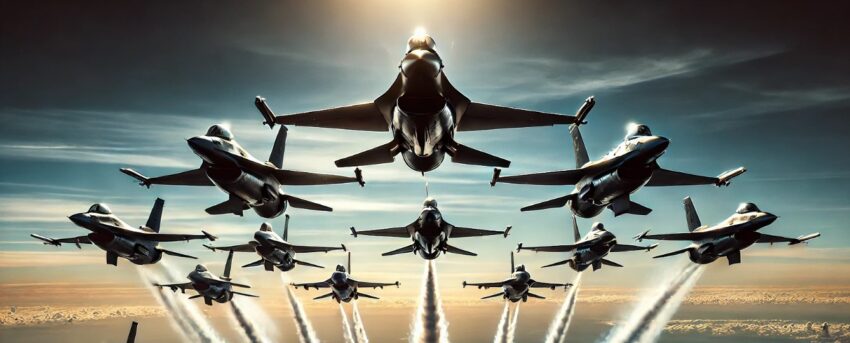In a significant escalation of tensions in the Middle East, Israeli forces conducted a targeted airstrike on the southern suburbs of Beirut, resulting in the death of Hezbollah leader Hassan Nasrallah. The Israeli military (IDF) confirmed the operation, which also claimed the lives of several top Hezbollah commanders. The attack marks one of the most critical blows to the Iran-backed Lebanese militant group in years.
- Hezbollah leader Hassan Nasrallah was killed in a targeted Israeli airstrike in Beirut, along with other senior commanders.
- The strike targeted Hezbollah’s underground headquarters in the southern suburbs of Beirut.
- Nasrallah led Hezbollah for over three decades and played a key role in coordinating military efforts with Iran.
- Hezbollah confirmed Nasrallah’s death and vowed continued resistance against Israel, with concerns about potential retaliation.
- Israel launched over 140 airstrikes following Nasrallah’s death, intensifying the conflict and displacing thousands in both Lebanon and Israel.
The Airstrike on Hezbollah Headquarters
The airstrike occurred on Friday, September 27, 2024, as Israeli fighter jets targeted the underground headquarters of Hezbollah in Dahieh, a residential area in southern Beirut. The Israeli military stated that the operation was based on precise intelligence, which had tracked the movements of Nasrallah and other key Hezbollah leaders. According to Israeli sources, Nasrallah and his senior commanders were meeting at the time of the strike to coordinate ongoing military actions against Israel.
Lebanon’s Health Ministry reported that at least six people were killed, including civilians, and more than 90 others were wounded in the strikes that leveled several residential buildings. Nasrallah’s death was later confirmed by Hezbollah, which vowed retaliation against Israel, stating that they would continue their fight in support of Palestine and Lebanon’s people.
Hassan Nasrallah’s Leadership and Legacy
Hassan Nasrallah led Hezbollah for more than three decades, transforming the group into one of the most powerful militant organizations in the region. Under his leadership, Hezbollah became deeply involved in Lebanon’s politics and gained considerable military power, largely with support from Iran. Nasrallah was known for his strong anti-Israel stance, orchestrating numerous military confrontations with Israel, including the 2006 Lebanon War.
Nasrallah’s death is a significant blow to Hezbollah, which has been engaged in an escalating conflict with Israel for nearly a year. Israeli Prime Minister Benjamin Netanyahu, who cut short his trip to the United Nations in New York to oversee the operation, described the strike as a crucial step in neutralizing threats against Israeli citizens. “As long as Hezbollah chooses the path of war, Israel has no choice but to respond decisively,” Netanyahu said.
Hezbollah’s Response and Regional Ramifications
Following the airstrike, Hezbollah confirmed Nasrallah’s death and vowed to continue its military efforts. In a statement, the group said Nasrallah had “joined his fellow martyrs” and reiterated their commitment to the fight against Israel, pledging to support Gaza and Palestine.
Nasrallah’s death has far-reaching implications for both Lebanon and the broader region. Hezbollah’s influence extends beyond Lebanon, playing a pivotal role in Syria’s civil war and maintaining close ties with Iran’s Islamic Revolutionary Guard Corps (IRGC). Nasrallah was considered a key figure in coordinating military efforts between Tehran, Hezbollah, and various militias operating in Syria and Iraq.
Experts believe that his death could shift the balance of power within Hezbollah and the broader “Axis of Resistance” led by Iran. Rich Goldberg, a senior advisor at the Foundation for Defense of Democracies, called the strike a “strategic game-changer” for the region. Nasrallah had taken over many of the responsibilities of Iran’s former Quds Force leader, Qassem Soleimani, who was killed by a U.S. drone strike in 2020. His elimination could weaken Hezbollah’s chain of command, but it also raises concerns about how Iran might respond.
Escalating Conflict in Lebanon
The Israeli military has warned that the fight is far from over. Since the strike that killed Nasrallah, the IDF has launched more than 140 airstrikes targeting Hezbollah’s military infrastructure, including weapons storage facilities and missile launchers. In response, Hezbollah has fired dozens of rockets into northern Israel, displacing tens of thousands of civilians on both sides of the border.
The conflict between Hezbollah and Israel escalated earlier this year after Hezbollah began launching rocket attacks in solidarity with Hamas, which had initiated its own attacks on Israeli territory from Gaza. The ongoing violence has displaced over 60,000 Israelis and more than 200,000 Lebanese in recent months. The United Nations has warned of a looming humanitarian crisis if the fighting continues to intensify.
The Path Forward
With the death of Nasrallah, Hezbollah faces a leadership crisis, and the future of the group remains uncertain. Some analysts believe Hezbollah may become even more aggressive in the short term, while others suggest this could open a window for diplomatic efforts to reduce Hezbollah’s influence in Lebanon.
For now, the region remains on high alert. Israel’s military has called up reserve soldiers and increased security along its northern border with Lebanon, preparing for potential retaliation. Meanwhile, Iran’s government has called on its allies in the region to stand by Hezbollah, further complicating the delicate balance of power in the Middle East.
The death of Hassan Nasrallah is a historic moment in the conflict between Israel and Hezbollah. As both sides brace for further confrontation, the impact of this airstrike will undoubtedly shape the future of Lebanon, Israel, and the broader region.

